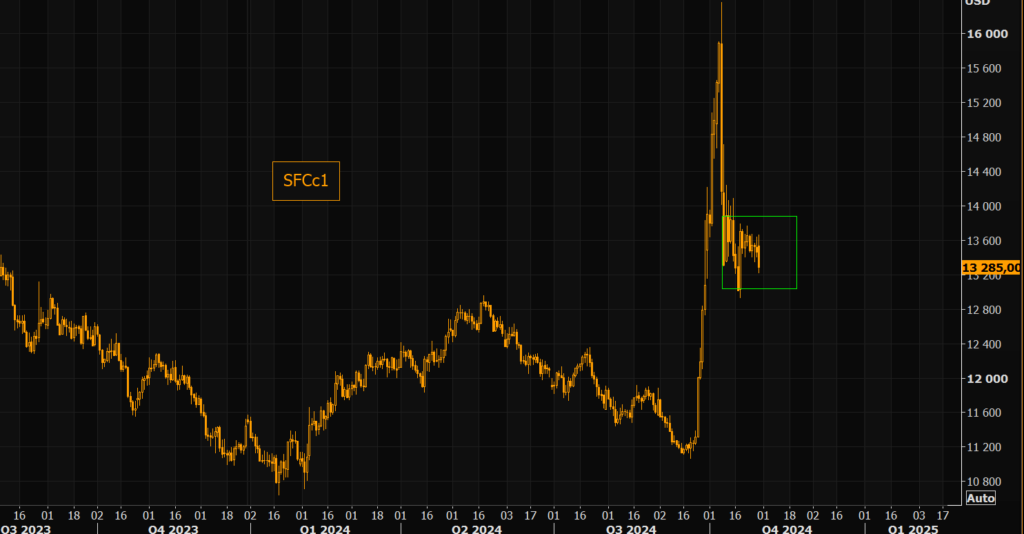China’s recent market fluctuations highlight the significant volatility and complexity of its economic landscape. The dramatic rise followed by a sharp decline in equity prices indicates a potential correction phase, which is common in markets experiencing extreme movements. This volatility suggests that investors need to exercise patience as the market works through these fluctuations, often referred to as a “hangover” from rapid changes. The current state of equity futures reflects a struggle for direction, indicating that a period of consolidation is necessary before a new trend can emerge.
In the wake of these extreme moves, it is crucial for investors to analyze the underlying factors contributing to this volatility. Economic policies, market sentiment, and external influences—such as global economic conditions—can significantly impact market behavior in China. Understanding the interactions between these forces can help investors gauge the potential for future growth or decline. During such corrective phases, market participants often reassess their strategies and positions, which can lead to further adjustments in trading volumes and stock prices.
As Chinese equity futures continue to trade within a narrow range, it underscores the caution among investors. Many are adopting a wait-and-see approach, preferring to let the volatility subside before making significant commitments. This consolidation phase can be seen as a necessary step for the market to solidify its foundations and prepare for the next upward trajectory. Investors are likely to monitor key economic indicators, policy changes, and corporate earnings closely, as these factors can provide signals regarding future moves.
The importance of sentiment in the market cannot be overstated. Investor confidence plays a crucial role in determining the direction of equity markets, especially in a rapidly evolving economy like China’s. Following a period of euphoria, when prices spike dramatically, there often follows a period of uncertainty and skepticism, leading to a potential sell-off. For the market to regain momentum, there needs to be a resurgence in positive sentiment, bolstered by favorable economic data and government policies that promote stability.
Furthermore, the global economic environment also affects China’s market dynamics. As a significant player in the global economy, changes in international trade agreements, geopolitical tensions, and shifts in demand from other countries can influence investor behavior in China. The interconnectedness of markets means that volatility in other regions can spill over into China’s equity markets, further complicating the recovery process. Therefore, a thorough understanding of global trends is essential for investors looking to navigate the current landscape.
In conclusion, the recent extreme movements in China’s equity markets illustrate the need for a cautious and strategic approach moving forward. The current consolidation phase is critical for stabilizing the market and setting the stage for future growth. Investors must remain vigilant and adaptable, taking into account both domestic and international factors that could shape market trajectories. By maintaining a balanced perspective and focusing on long-term fundamentals, market participants can better position themselves to take advantage of potential opportunities as the market emerges from this period of volatility.

